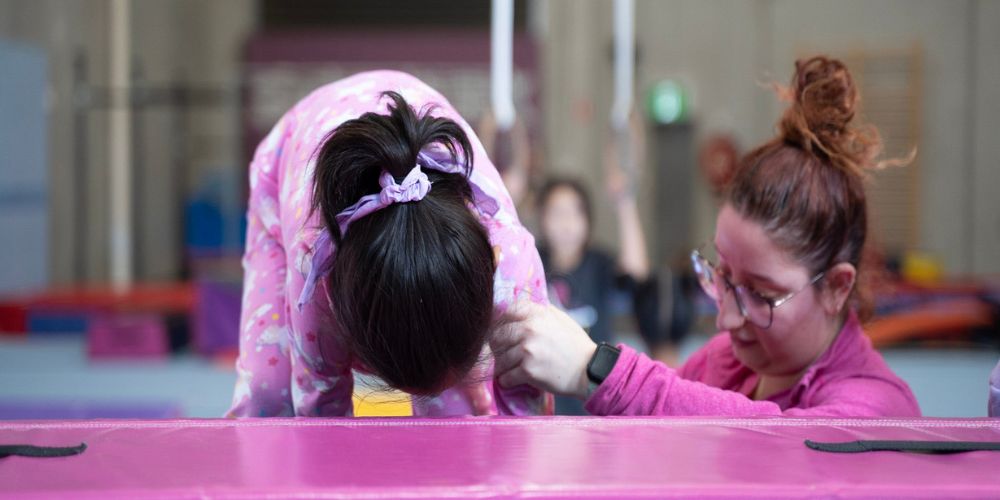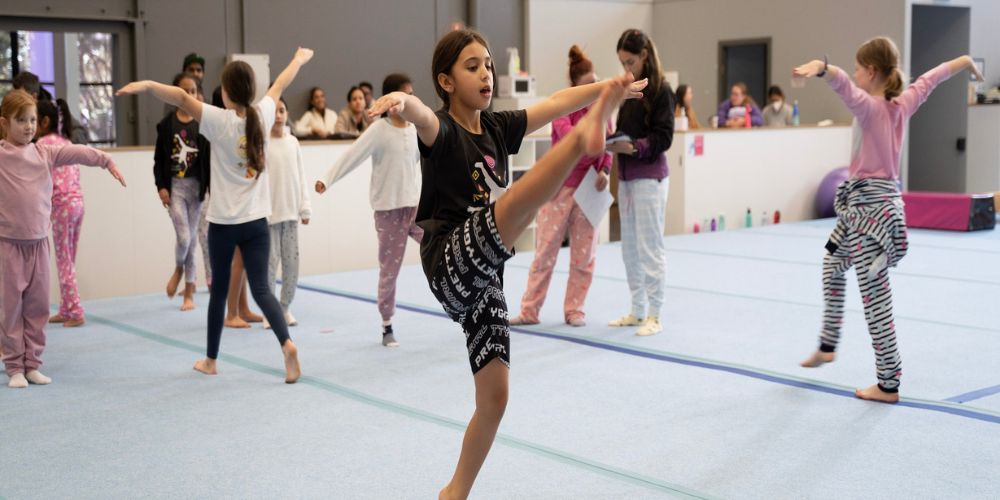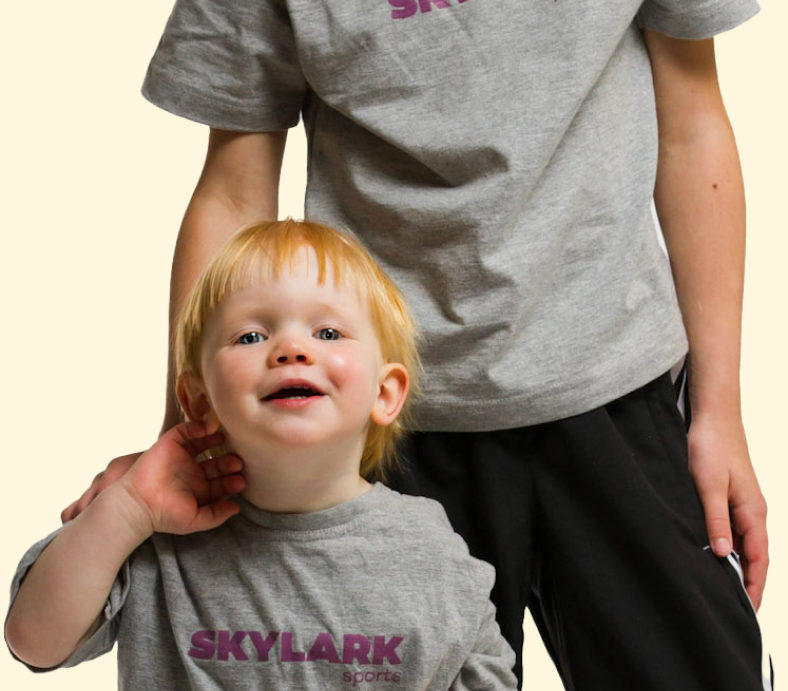Kindergym is a physical training program developed for young children between the ages of one and five. It is a safe and exciting approach for children to engage in age-appropriate activities that improve physical, cognitive, and social development.
A child's early years are an important time in their development since this is when they learn the fundamental abilities that will serve as the basis for all of their future learning and growth. By giving kids a chance to learn and develop in a fun and engaging setting, kindergym is a great activity that can promote this period of development.
Read further as we will be discuss to you why kindergym is beneficial for your child's early development!

Kindergym Benefits for Early Childhood Development
In an article released by Edith Cowan University, early childhood development is defined as the study of a child's physical, emotional, and social growth and development throughout the first few years of life. It also describes how their capacity for thought and communication changes throughout time. These areas of development are all crucial in a child's early years and are closely related to one another.
Kindergym offers various benefits for early childhood development, including:
Developing Motor Skills
Children's gross motor and fine motor abilities are developed through kindergym exercises. Cling, rolling, leaping, and balancing encourage toddlers to use their whole body, enhancing their coordination, balance, and general physical aptitude. Youngsters also grasp their body's motions and spatial awareness through these exercises.
Enhancing Cognitive Skills
Kindergym promotes cognitive skills by fostering brain growth. The exercises involved in kindergym assist youngsters develop spatial awareness, problem-solving skills, and decision-making ability. Children can think creatively and strategically as they overcome challenges, which can help them later in life when pursuing educational goals.
Boosting Social Skills
Kindergym allows children to engage with their classmates and adults in a friendly and safe setting. Children learn to communicate effectively, collaborate, and create friends by working in teams and sharing equipment. These social abilities are vital for their emotional and psychological well-being.
Fostering Independence
Kindergym helps children build independence by encouraging them to take chances and attempt new things. With the help of their parents or teachers, youngsters may explore their strengths and acquire confidence in their abilities. Kindergym creates a sense of self-awareness and self-esteem in children as they learn to do tasks independently and enjoy their successes.
Promoting a Healthy Lifestyle
Kindergym encourages a healthy lifestyle by encouraging children to be physically active from an early age. When youngsters learn to like exercise, they are likelier to continue being physically active. This can avoid obesity, diabetes, and other health difficulties in adulthood. Kindergym also teaches youngsters about the need for an excellent diet and healthy practices.
How Does Kindergym Work?
Kindergym lessons are typically organized to be entertaining, safe, and developmentally suitable for young children. A typical class may include a warm-up, a variety of stations or exercises, and a cool-down session. Here's a summary of what children should expect during an average kindergym class:
Warm-Up
The warm-up generally contains a range of exercises and motions that get children's bodies ready for physical activity. This may involve stretching, jumping jacks, and other basic motions to promote blood flow and flexibility.
Activites or Stations
Children often move through some stations or activities after the warm-up. These might consist of physical exercises like running, crawling, or leaping and gymnastics apparatus such as balancing beams, mats, and trampolines. Each station is made to help in children's growth of particular physical and mental abilities.
Cool-Down
A cool-down hour after class typically includes stretching and relaxing techniques. This is crucial to perform to protect kids from harm and to settle them down after an energetic session.
Kindergym Activities That Encourage Early Child Development
Rolling and Crumbling
Children's coordination, spatial awareness, and gross motor abilities are all improved through crawling and rolling exercises. Children can be encouraged to roll down slopes or soft mats, crawl through tunnels or over obstacles, or both.
Balancing
Children that engage in balancing exercises improve their coordination, balance, and core strength. Examples include standing on one foot while walking along a balance beam or a low wall.
Jumping and juggling
Activities like hopping and jumping help kids improve their balance, coordination, and leg strength. Their parents might encourage children to hop over tiny obstacles, hopscotch, or jump on trampolines.
Climbing
Through climbing exercises, children can improve their upper body strength, balance, and coordination. Ropes, ladders, and climbing walls are a few examples.
Using Balls to Play
Children can improve their social skills, gross motor abilities, and hand-eye coordination by playing with balls. Children might be encouraged by their parents to play basketball or soccer or toss and catch balls.
Dancing
Through dancing, children can improve their coordination, rhythm, and gross motor abilities. Children might be encouraged by their parents to play dancing games, dance to music, or do easy routines.
Tumbling
Children participating in tumbling exercises improve their balance, coordination, and strength. Cartwheels forward rolls, and somersaults are a few examples.
Imaginative Play
Children are encouraged to use their imaginations, creativity, and social skills via imaginative play. Children might be encouraged by their parents to act out various scenarios, wear costumes, or play pretend.

How To Get Your Kids Started With Kindergym?
Here are some tips to get you started if you're interested in enrolling your child in kindergym:
Find a Trustworthy Program
Start by reading reviews of neighbourhood kindergarten programs written by other parents. In addition to having trained and experienced instructors, look for programmes with a good safety record. Consider the facility's philosophy and approach to ensure the programme meets your child's requirements and interests.
Prepare kids for their first class
Talk to your kid about what to anticipate and the value of kindergym before the first lesson. They may become more at ease and enthusiastic about the encounter. You might also advise them to pack a water bottle, a small snack, and comfortable attire.
Encourage kids to keep going to Kindergym
Ask your child about their experience and what they liked most after the first lesson. Encourage them to stay in kindergym if they had a good experience. They can also be reminded of the advantages of kindergarten and how it can aid in developing critical skills.
Be Consistent
The key to kindergarten is consistency. Ensure your child is prepared and ready for each lesson, and encourage them to attend school regularly. This might assist them in enhancing their abilities and advancing over time.
Frequently Asked Questions
Which age range is appropriate for kindergym classes?
Kindergym is appropriate for children from 6 months to 5 years old, depending on the lessons. Specific programmes could have distinct classes or age-specific age ranges.
Are parents required to attend kindergarten lessons with their kids?
Depending on the programme, yes. While some kindergarten programmes require parents to attend courses with their kids, others let kids go to sessions independently.
How frequently should kids enrol in kindergarten classes?
Most programmes advise going once or twice a week to show noticeable growth.
Is kindergarten gym an athletic endeavour?
No, playing in the kindergarten gym is not usually a competitive activity. It is centred on learning new things and having fun in a welcoming and motivating atmosphere.
Conclusion
Early childhood development can benefit from kindergym in various ways, including the development of motor skills, cognitive abilities, social abilities, encouragement of independence, and promotion of a healthy lifestyle. Parents may allow their kids to learn these skills in a friendly and motivating setting by enrolling them in kindergym programmes.
Enrolling your child in a reputed kindergarten programme is something you should consider doing as a parent if you want to assist their development. Kindergym might be an excellent option for your kid since it has skilled and experienced instructors, an emphasis on safety and enjoyment, and various exercises to develop various abilities.
Explore the kindergarten programmes available to start supporting your child's development. Give your kid the gift of early childhood development, and watch them thrive!

